Search
Search Results
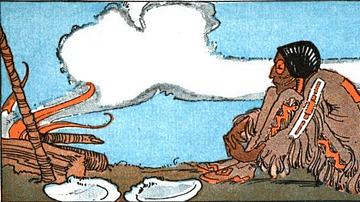
Article
The Bound Children
The Bound Children is a Sioux legend highlighting the importance of proper behavior, not only among family members but within one's community. The widow, who does not properly care for her children, is punished, along with those who support...

Definition
Ragnar Lothbrok
Ragnar Lothbrok (Old Norse Ragnarr Loðbrók, also anglicised as Ragnar Lodbrok), whose epithet means 'Hairy-breeches' or 'Shaggy-breeches', was a legendary Viking king, with Old Norse sagas, poetry, and medieval Latin sources telling of his...
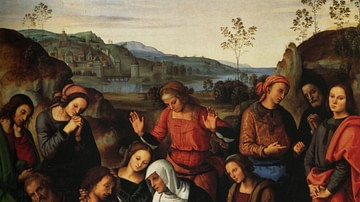
Definition
Joseph of Arimathea
Joseph of Arimathea was a follower of Jesus of Nazareth who buried him in his own tomb after the crucifixion. In the gospels, Mark and Luke identified him as a member of the Sanhedrin, the Jewish Council in Jerusalem. The location of Arimathea...
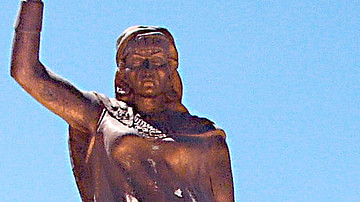
Definition
Kahina
Kahina (7th century CE) was a Berber (Imazighen) warrior-queen and seer who led her people against the Arab Invasion of North Africa in the 7th century CE. She is also known as al-Kahina, Dihya al-Kahina, Dahlia, Daya, and Dahia-al-Kahina...
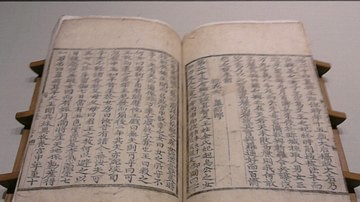
Definition
Samguk Yusa
The Samguk yusa ('Memorabilia of the Three Kingdoms') is a 13th-century CE text which covers the history and legends of Korea's founding right up to the 10th century CE. It is a sequel of sorts to the earlier Samguk sagi ('Records of the...

Article
Raven Tales of the Athabaskan (Dene)-Speaking Peoples
The Raven tales are stories featuring the trickster figure Raven that come from the Athabaskan (Dene)-speaking peoples of the Pacific Northwest and other First Nations of the region of modern-day Canada. Raven, like the trickster figures...

Article
Making the Sacred Bundle
Making the Sacred Bundle is an origin story of the medicine bag from the Pawnee nation. A medicine bag is a pouch or bundle containing items of resonant spiritual power for an individual or the tribal community that symbolize and maintain...
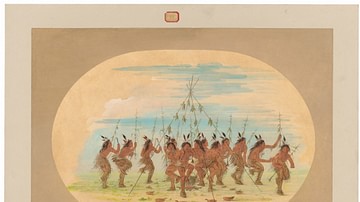
Article
Sioux Story of The Gift of Corn
Corn (maize) was central to the lives of Native Americans across North, Central, and South America. Maize was introduced to North America from Mesoamerica c. 700/900 CE and transformed the lives of the indigenous peoples. Every tribal nation...
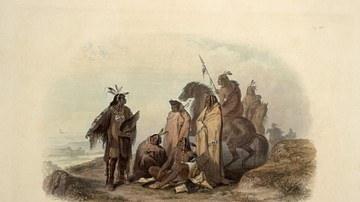
Article
The Sioux who Married the Crow Chief's Daughter
The Sioux who Married the Crow Chief's Daughter is a legend of the Lakota Sioux about Chief Big Eagle who left his people to marry a woman of the enemy Crow nation but never forgot the duties owed to his own people. The story highlights the...
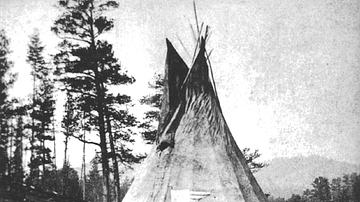
Article
White Plume
White Plume is a hero tale of the Sioux nation featuring the supernatural trickster figure Unktomi (Iktomi) who serves as a catalyst for transformation, whether for good or ill. In this story, Unktomi is the villain whereas in others, such...